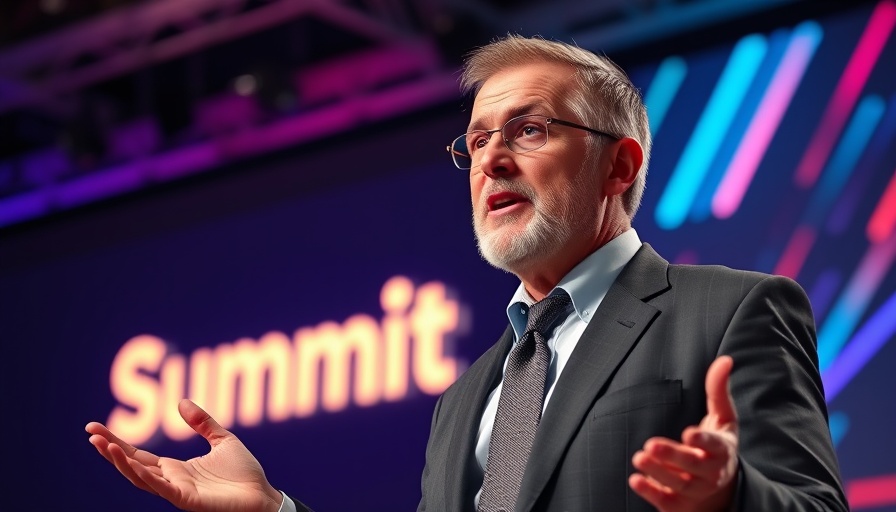
Unpacking the Uncertainty of AI Adoption in Enterprises
As we progress through 2025, the conversation surrounding artificial intelligence (AI) remains complex and fraught with uncertainty. At a recent AI Summit hosted by Cisco Systems Inc. in Palo Alto, California, a pressing concern emerged from top executives: only 13% of companies feel fully prepared to harness AI's potential. This not only marks a decrease from the previous year but also underscores an ongoing struggle to grasp the implications of this transformative technology. Cisco's CEO, Chuck Robbins, articulated a familiar sentiment, emphasizing that while the promise of AI is evident, the unknowns evoke significant apprehension among corporate leaders, hindering broader adoption.
Understanding the Spectrum of AI Challenges
The challenges faced by companies navigating the AI landscape are vast and interconnected. During the summit, leaders from various industries discussed issues ranging from competition for silicon resources to regulatory hurdles, alongside the quest for meaningful productivity gains. David Solomon, CEO of Goldman Sachs Group Inc., highlighted the challenge of translating AI's potential into actionable outputs that genuinely enhance workplace productivity. Solomon cited the bank's use of AI to draft crucial S-1 public filing documents as a notable example, showcasing how AI can streamline complex processes while still necessitating human expertise for final differentiation.
The Evolution of AI Capabilities: A Future Outlook
What is particularly exciting is the evolution of AI capabilities. Aidan Gomez, CEO of Cohere Inc. and a pioneer in deep learning architectures, elaborated on how current models are advancing from simple knowledge replication to generating novel insights and ideas. This transition toward reasoning represents a significant leap in AI's capabilities, as models begin to exhibit the ability to create information that hasn’t been explicitly seen before. Gomez’s insights reflect a growing confidence in the creative potential of AI, suggesting that as our technologies evolve, we may unlock unprecedented opportunities.
Comparative Framework: AI's Impact Across Industries
While Cisco’s summit highlighted the concerns of executives, it also served as a microcosm of a broader trend. Across various sectors, businesses are wrestling with the implications of AI integration. Organizations in biotechnology, fintech, and even media are re-evaluating their operational frameworks to include AI strategically. The way companies adopt AI and the nuances of their respective challenges provide a broader understanding of the technological landscape. For instance, biotech firms may face different regulatory challenges than those in tech, indicating that a nuanced approach to AI adoption may be necessary.
Recognizing the Quantifiable Benefits of AI
Despite the risks and challenges outlined at the summit, there is a clear narrative of potential benefits that AI brings. The ability to automate routine tasks and generate insights in real-time can lead to exponential productivity increases across industries. This is particularly pertinent as companies strive to remain competitive in a rapidly evolving business environment. Understanding and capitalizing on AI’s capabilities could very well define market leaders in the coming years.
As AI continues to advance and reshape industries, executives and decision-makers must navigate the landscape not only with caution but also with an eye toward the transformative opportunities ahead. By fostering a culture of adaptability and continuous learning, organizations stand to benefit enormously from integrating AI into their core strategies.
 Add Row
Add Row  Add
Add 




Write A Comment